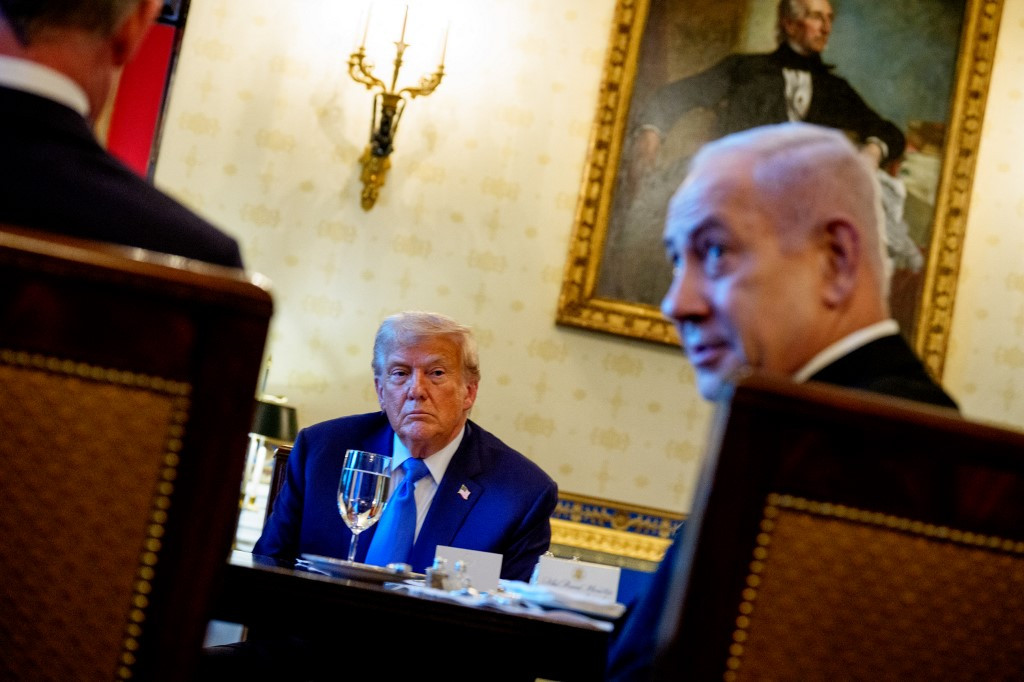The Fragile Landscape of Middle East Politics: A Focus on the Netanyahu-Trump Connection
An Unclear Direction
Middle East politics is in a state of turbulence, veering toward an uncertain future despite recent diplomatic efforts. Israeli Prime Minister Benjamin Netanyahu’s visit to the White House, where he spoke with President Donald Trump about a proposed “60-day ceasefire,” has not yielded substantial results. Observers fear that rather than leading to lasting peace, this ceasefire remains fragile and may ultimately fail.
Netanyahu’s Diplomatic Aspirations
Netanyahu’s trip to Washington was strategically significant. It aimed to gain unwavering support from the Trump administration for Israel’s security interests amid growing tensions in the region. For Trump, Netanyahu represents a key ally in reinforcing U.S. political ambitions in the Middle East. However, the uneasy backdrop of violence complicates these diplomatic overtures. Reports indicate that, while Netanyahu was engaging in dialogue with Trump, Israeli forces reportedly killed 98 Palestinians in Gaza, raising questions about Israel’s commitment to a ceasefire.
Domestic Pressures and Political Calculations
The dynamics of domestic politics are also at play. Recent reports suggest that Netanyahu may have been reluctant to commit fully to a ceasefire due to pressure from his political base. As noted in a New York Times article, Netanyahu appears to prefer extending military actions in Gaza as a means of solidifying his power during politically tumultuous times. This precarious position leaves the status of peace negotiations hanging by a thread.
A Nobel Proposal
During their meeting, Netanyahu took a striking step by submitting a letter nominating Trump for the Nobel Peace Prize. In the letter, he praised Trump for his efforts in promoting global stability and security. However, this gesture has stirred a wave of cynicism. Critics argue that for Trump to even be considered for such a prestigious award, the bloodshed in Gaza must cease—a sentiment echoed by Mohamad Bazzi, a professor at New York University. Bazzi pointedly noted, “If Trump truly wants a shot at winning the Nobel prize, he would first need to stop the bloodshed in Gaza.”
Tensions with Iran
The dialogue between Netanyahu and Trump also touches upon the contentious issue of Iran. Following discussions that appeared to celebrate a so-called “victory lap” over Iranian influence, Trump indicated a willingness to reconsider military action against Iranian nuclear facilities. This declaration came after Iranian Supreme Leader Ayatollah Ali Khamenei asserted Iran’s triumph in response to U.S. military actions. Tehran’s defiance against U.S. threats complicates the geopolitical landscape further, as Khamenei has labeled Trump as both a liar and an antagonist of Iran. The prospect of “regime change” in Iran has also been floated by both leaders, but such declarations are fraught with risk and uncertainty.
Global Expectations and Tensions
As Netanyahu and Trump navigate these complex waters, the world is left watching with bated breath. The combination of domestic pressures, international alliances, and longstanding grievances presents an increasingly challenging maze for peace in the Middle East. With every military action and diplomatic overture, the risk of further conflict looms large. The hope for stability hangs precariously in this volatile environment, where the urgency for genuine dialogue is overshadowed by competing interests.
In this intricate web of alliances and rivalries, the consequences of actions taken by both Trump and Netanyahu resonate far beyond their immediate political gains, impacting millions in a region already fraught with tension.


